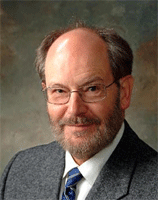Rhetorics and Epistemologies of Relationships
|
Steve Duck, Professor of Communication Studies
Univeristy of Iowa
October 26, 2006 1:30 PM to 3 PM in Shillman 305
Relationships are far more than emotional attachments or bonds. They are not merely happy, emotionally satisfying, elements of our lives but they significantly shape our experiences of the world and contribute to our senses of identity, our outlook on life, and even the way in which we think about things. I will address questions such as How do people know their world?, How much of what we know is individual knowledge and how much comes from groups and our personal relationships to other people? and How does membership of relationships structure our experience, affect our ranges of knowledge, and organize our daily lives?. I will introduce a variety of communicative situations by means of which individuals establish, reconstitute, and demonstrate their membership of communities and relationships. However, I will develop the idea that these relational activities serve epistemic functions, which is to say that they construct, constrain, or facilitate means through which a person knows and experiences the world. Relationships are more than satisfying reliable alliances with others; rather they are communicative loci where the person's knowledge of life is shaped, formed, and interpreted. Thus relationships are both an influence on our ways of thinking and also are places where we sculpt our identity and learn or modify our worth to others. |
 |
Steve Duck is the Daniel and Amy Starch Distinguished Research Professor at the University of Iowa. He received his Ph.D. at the University of Sheffield, UK. His work centers on communication in relationship development and disintegration, and focuses particularly on everyday communication in the context of personal relationships, especially variation in experience and communication during the day. He has edited or written 36 books and was founding editor of the Journal of Social and Personal Relationships. His work generally seeks to relate the rhetoric of everyday talk to interpersonal relationship processes. He won the University of Iowa's first Graduate College Outstanding Mentor Award in 2001 and in 2004 he won the Robert J. Kibler Memorial Award from NCA.
